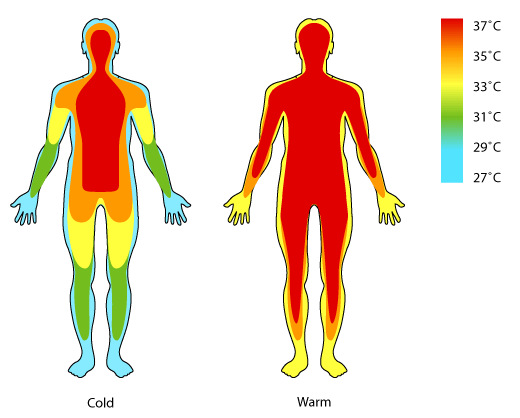Finding It Painfully Cold To Train Through Winter? Feeling Sluggish and Unmotivated? Could Your Body Temperature Be Too Low? Find Out Why!
Having a low body temperature will have you rugged up more than your buddies, making excuses to stay in bed, and doing anything to get out of taking a dip in the pool. Before you know it, winter passes and you’re way behind in your training progress. A number of health risks can lower your body temperature, making it, for some, excruciatingly painful to expose themselves to the elements this winter. The great news is that it’s easy to fix!
Sluggish energy or fatigue, low motivation, trouble with your weight, fluid retention, foggy or low mood, hair loss and low hormones are also symptoms that can occur with excessive sensitivity to the cold. If you’ve suspected your thyroid, and had it checked, only to come back normal anyway, you may have been on the right track, but with the wrong test.
Your thyroid could be the most common cause of a low body temperature, but keep in mind that the thyroid doesn’t just play up on its own, there’s always another cause. Your Thyroid Stimulating Hormone (TSH) is the most typical and only test your doctor may choose to do to check your thyroid function, and if you have a real and obvious thyroid condition or disease, this will generally be abnormal, leading to further thyroid testing. However, if your TSH is normal, you could still be suffering with Subclinical Hypothyroidism or Wilson’s Syndrome, which is a mild form of low thyroid function, which can wreak just as much havoc for your body temperature, metabolism, hormone balance, mood issues and energy levels, and will not be picked up with TSH testing alone.
There are a full range of tests that should be done to fully examine your thyroid health, and without these, this very common condition can go undetected for years. Once you have a correct diagnosis, finding out what to do about it is the next step. Triggers for Wilsons Syndrome can be stress induced, dietary, hormonal imbalance or nutritional deficiency, and each individual can vary greatly. Finding these triggers is as simple as organising follow up blood testing over a range of nutrients and body functions to find the cause easily, and is often very quickly resolved.




